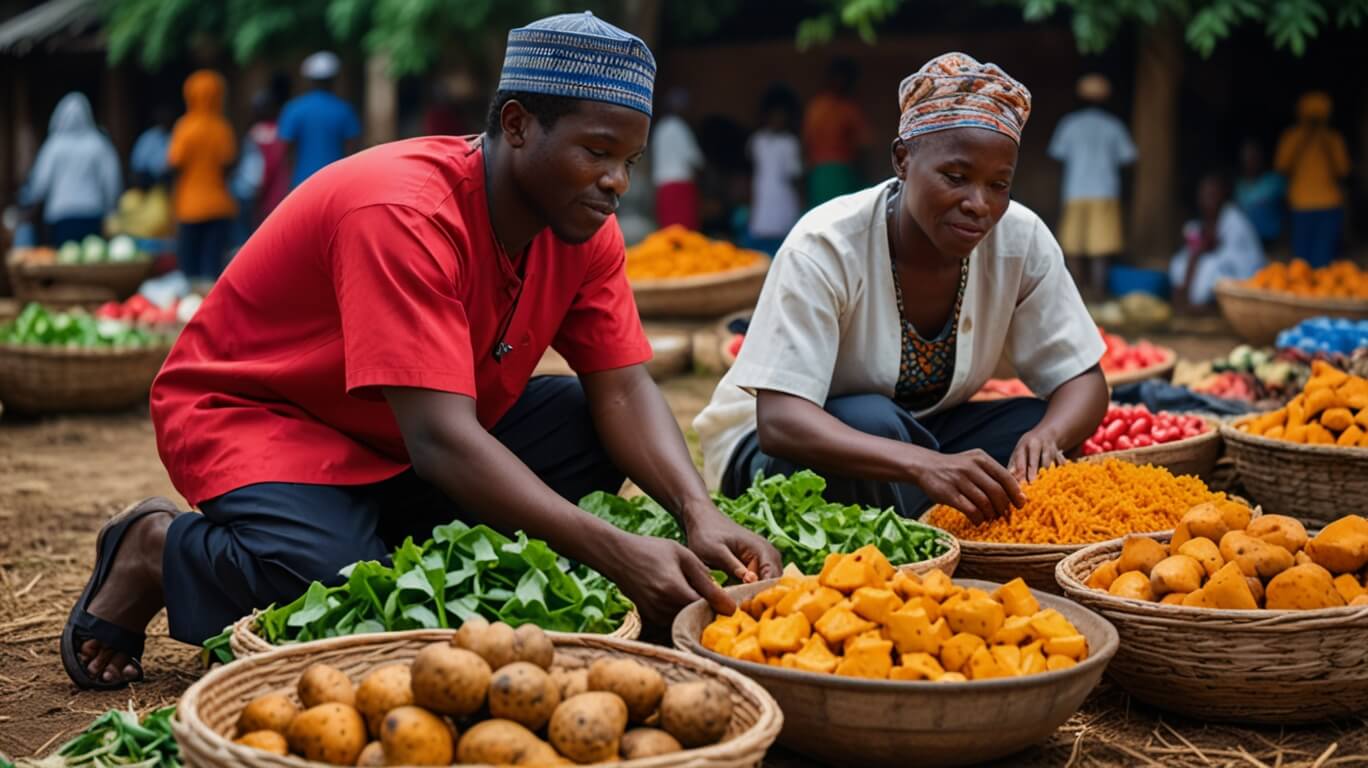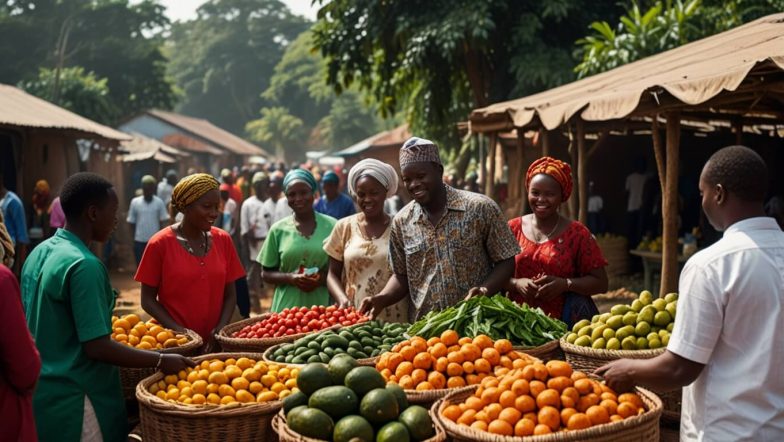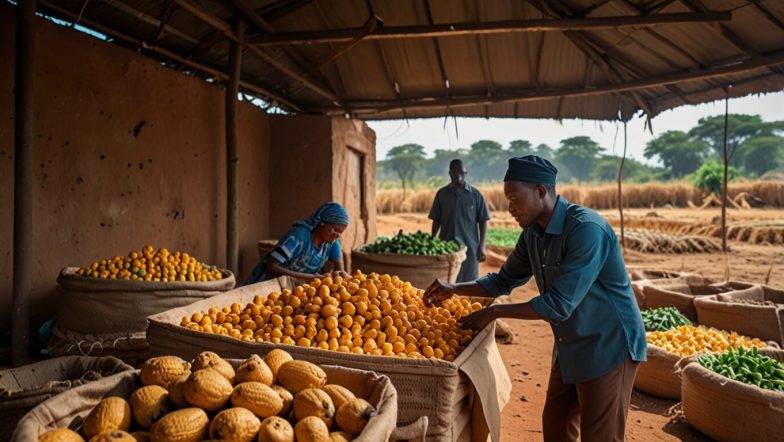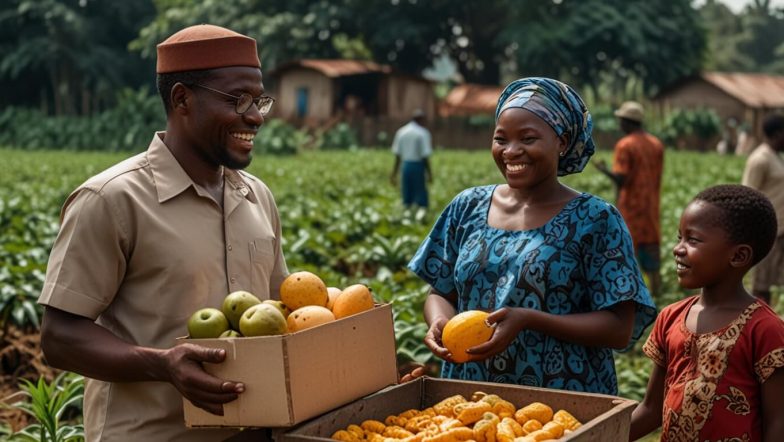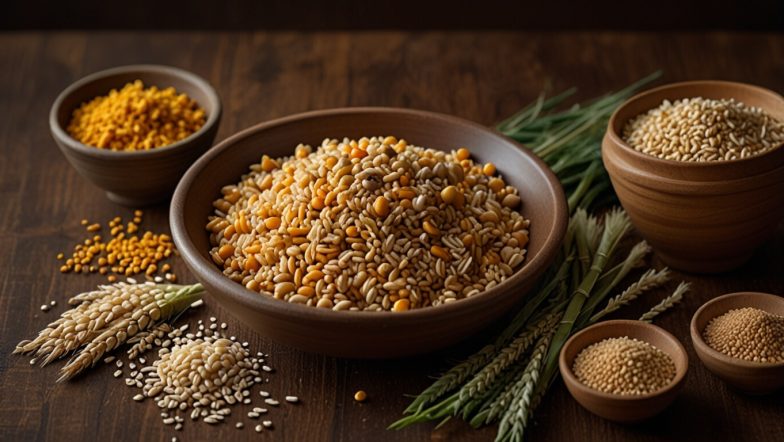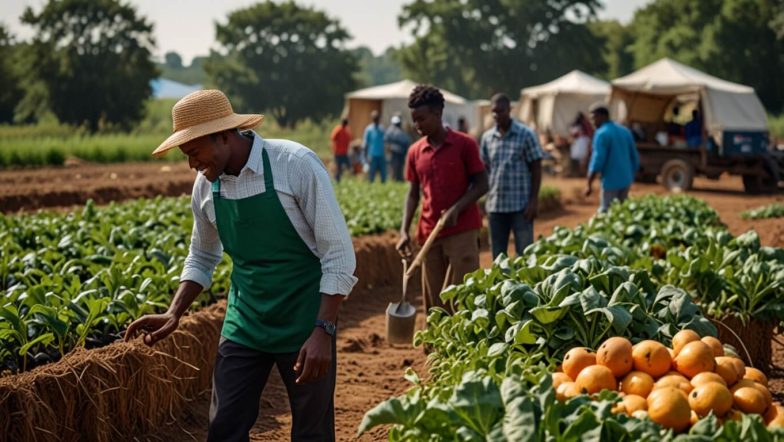Malnutrition remains one of Nigeria’s most pressing public health challenges. According to UNICEF, nearly 37% of Nigerian children under five suffer from stunting, a condition linked to chronic malnutrition. This alarming statistic is not just a health crisis but a barrier to national development. However, amidst this challenge lies an untapped solution— Nigeria’s rich heritage of traditional foods. As someone deeply invested in promoting healthy living and sustainable food systems, I believe that traditional foods hold the key to combating malnutrition and fostering a healthier future for our nation.
The Nutritional Power of Traditional Foods
Nigeria’s traditional foods are a treasure trove of nutrients. From nutrient-dense staples like millet, sorghum, and yam to protein-rich legumes such as beans and cowpeas, these foods have sustained generations of Nigerians. Leafy greens like ugwu (fluted pumpkin) and bitter leaf, as well as fruits like oranges and mangoes, are packed with essential vitamins and minerals. These foods are not only affordable and accessible but also culturally significant, making them a practical solution to malnutrition.
Traditional diets, when properly balanced, can provide all the essential nutrients needed for growth and development. For instance, a meal of “tuwo shinkafa” (rice pudding) with “miyan kuka” (baobab leaf soup) and grilled fish offers a balanced combination of carbohydrates, protein, vitamins, and minerals.
This is a stark contrast to the highly processed, nutrient-poor foods that are increasingly dominating diets in urban areas.
Addressing Malnutrition with Indigenous Diets
Nigeria is a country of agricultural abundance, yet malnutrition persists. Why? The answer lies in a combination of factors, including poverty, lack of education, and the erosion of traditional food systems. Many families, especially in rural areas, cannot afford diverse diets, while others have shifted to cheaper, less nutritious alternatives due to urbanization and globalization. For instance, the consumption of legumes and oil seeds has been shown to prevent conditions like kwashiorkor and marasmus. However, in many regions, these are not consumed in adequate amounts. Enhancing their presence in diets can significantly impact nutritional health.
One notable initiative is the revitalization of the “Tom Brown” recipe—a flour blend consumed as a sweetened porridge. Made from locally sourced ingredients such as maize, millet, and soybeans, Tom Brown is rich in protein and energy. This approach is cost-effective and leverages familiar, locally available foods, making it a sustainable intervention.
Policy Support and Sustainable Practices
Government policies also have a critical role to play in promoting traditional foods. Subsidies for farmers growing traditional crops, investments in food processing infrastructure, and public health campaigns can all help to create an enabling environment. Additionally, sustainable agricultural practices must be prioritized to ensure that these foods remain available for future generations. By supporting smallholder farmers and promoting agroecological practices, Nigeria can harness the full potential of its traditional foods while protecting the environment.
A Call to Action
The fight against malnutrition is not one that can be won overnight, but it is a fight we cannot afford to lose. Traditional foods offer a sustainable, culturally relevant, and economically viable solution to this crisis. By embracing these foods, we can improve health outcomes, support local farmers, and preserve our cultural heritage.
To businesses, policymakers, and individuals alike, we urge you to take action. Support initiatives that promote traditional foods, educate your communities about their benefits, and advocate for policies that make these foods more accessible. Together, we can combat malnutrition and build a healthier, more resilient Nigeria. Let’s return to our roots—for the sake of our health, our children, and our future.

